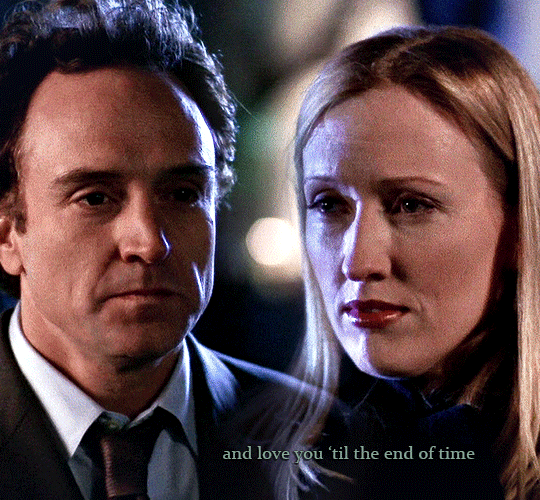#i think gif 2 supremacy still reigns
Text










Like the roses need the rain
Like the seasons need to change
Like a poet needs the pain
I need you in these arms tonight
#Josh Lyman#Donna Moss#twwedit#the west wing#userannalise#tvfilmsource#smallscreensource#otpsource#useroptional#usersource#userstream#filmtvdaily#cinematv#cinemapix#dailyflicks#my gifs#my posts#mine: Donna Moss#mine: Josh/Donna#mine: tww#song is in these arms by bon jovi#its unheard of but i actually like this set. ive been on and off making it for months#i forgot until i got around half way through that donna loves bon jovi so even more fitting for them#everyone thank the universe that my noel file broke because gif 6 was going to be sad but now its happy#i think gif 2 supremacy still reigns
165 notes
·
View notes
Text
@ainedubh reblogged your post “Reading the question about the lack of...”
Okay, I’ve been obsessing over this for days now, came to the conclusion that up to the point of Rickon’s death, he and Daena are the only viable Pact marriage, and it’s led me to a very tangential question I can’t believe I haven’t thought of before.
Why were Daena and Baelor married?
It obviously wasn’t a love-match. Were they betrothed as kids by Aegon III? If so, why did he skip over betrothing his heir to his eldest daughter, particularly since he seemingly didn’t betroth Daeron to anyone else?
If they weren’t already betrothed, did Daeron arrange their marriage once he was king? Again, why not marry her himself? And even if he didn’t want to marry her, why not arrange marriages for each of them with useful allies for his Dornish war instead?
Was this actually arranged by Viserys II while he’s Daeron’s Hand of the King? Why would he do this?
Me getting ready to answer an ASOIAF marriage making question like:

I do indeed have thoughts.
While I don't think we have nearly enough information to pick one option definitively, I believe that there are three probable answers to the question of who arranged the marriage of Baelor and Daena: Aegon III (along with possibly Daenaera Velaryon, that is if GRRM feels like giving her agency and personality in Fire and Blood Volume 2), Daeron I, and the future Viserys II. Importantly, I do not believe these answers have to have been mutually exclusive with each other; it is entirely possible, I think, that aspects of any of these explanations or all three of them might end up being true. (Also this turned into a literal essay which is why I'm putting a cut for length.)
FIrst, why might Aegon III (and again, maybe Queen Daenaera as well) have arranged the marriage of Baelor and Daena? The reason might lie in the fundamental power shift occurring with the Targaryen monarchy during the adult reign of Aegon III. Remember that Baelor was born in 144 AC and Daena just a year later - that is, during the terminal decline of the Targaryen dragons. These animals, once the guarantors of Targaryen supremacy in Westeros, were growing fewer, smaller, and weaker, with the last one dying not even a decade after Baelor's and Daena's births. In their absence, the Targaryens were set to lose not just the physical means of enforcing their will upon truculent vassals or enemy invaders, but the semi-mystical cult of authority which their control of dragons had afforded them. It is a point I have brought up before, but it bears repeating here: if the Doctrine of Exceptionalism depended on the Targaryens being "the blood of the dragon", unique masters of dragons among all (surviving) families in the world, how Exceptional (capital E) could the Targaryens be once they no longer rode dragons?
So perhaps Aegon III (along with potentially his queen) decided that a marriage between Baeor and Daena would serve both as an acknowledgement of and a response to the loss of the dragons. By openly arranging for a brother-sister betrothal, the king would have demonstrated that the Doctrine of Exceptionalism had lost none of its force in the absence of the dragons which had once justified it: the Targaryens were still "the blood of the dragon" even without the animals themselves, once dragonriders if no longer so, and thus continued to have every right to the sort of incestuous unions forbidden to their non-dragonlord subjects. At the same time, by arranging only for his second son's betrothal while leaving his heir Daeron nuptially free, Aegon III might have wished to quietly recognize the changing political balance in a post-draconic world. Without their dragons, the Targaryens could no longer stand so independently from their vassals; now more than ever, the (virtually) continent-wide feudal structure created by Aegon the Conqueror kept the Targaryens in their royal position - and those who protected a monarchy could just as easily overturn a monarchy (a bitter lesson learned by Aegon III, who had grown up first with the violent national fraction of the Dance and then the murderous rival ambitions of the regency years). The hand in marriage of the heir to the throne, a familiar diplomatic bargaining chip for eons in dynastic Westeros, might, so Aegon III could have believed, have aided the Targaryens in appealing to one of these powerful bannermen in the future.
(It may also be worth pointing out that, insofar as Baelor may have been named in honor of Prince Baelon - and I do like to headcanon this - Aegon III and/or Queen Daenaera may have wanted to underline the connection between the two through such a marriage. Just as Prince Baelon, that loyal lieutenant and second (surviving) son of Jaehaerys I, had enjoyed an apparently happy marriage (my criticisms of the writing of it notwithstanding) with his sister-wife Alyssa, so perhaps the king and queen thought their Baelor, another second royal son, would be like Baelon not just as a (hoped for) loyal and brave lieutenant, but as the husband in a (so they might have hoped) successful brother-sister marriage.)
Now, why might Daeron I have arranged the marriage of his brother and his sister? Perhaps we might compare Daeron here to Robb in ASOS. Remember Robb's dynastic dilemma, as related in "Catelyn V": while Robb had found himself a wife and (without being too crude about it) was working on getting an heir by her, Robb also knew that he could very well die in his next battle - and he was planning on fighting plenty of battles in the near future, as he marched to retake Winterfell. Yet with Bran, Rickon, and Arya all ostensibly dead, with Sansa the new wife of Tyrion Lannister, and with his next closest (legitimate) Stark cousin a distant relation in the Vale who had never so much as seen Winterfell, Robb had no obvious heir presumptive to whom he could trust the dual crown of the North and Trident if (and when) he died. Robb's solution, of course, was Jon: a (supposed) half-brother whom Robb could legitimize, an adult male Stark in all but name and (again, supposed) son of Lord Eddard who could, so Robb hoped, easily assume the mantle of royal leadership.
I could very well believe Daeron I might have found himself in a somewhat similar position to that of Robb. While we don't know if Daeron ever planned on marrying himself (and it is a mixed bag on that score for Daeron's real-world inspirations), he definitely never did, nor fathered any known children. Certainly, Daeron did not lack an obvious heir presumptive in quite the same way Robb did: by both birth order and gender, Baelor would have been almost certainly expected to succeed Daeron if the latter died childless. Yet Daeron may have found himself lacking what we might call a spiritual successor: pious, peace-loving, unmartial Baelor may not, so perhaps Daeron thought, have been the man to entrust his kingdom to when he, Daeron, had (as he believed) worked so hard to conquer Dorne and assert Targaryen rule over this last independent Westerosi state (especially by 160 AC, when Baelor and Daena actually married, as Daeron’s military involvement in Dorne was far from over). Yet Daeron had no easy alternative heir to designate: while he might have found Daena most similar to himself in personality, Daeron only needed to remember the devastation of the Dance, just a few decades past, to refrain from naming another female heir when a male heir existed.
Perhaps, then, Daeron believed the marriage of Baelor and Daena would remedy this dilemma. Even if Daeron himself died childless, the monarchy would be overseen at least partially by the now Queen Daena, the sister who idolized Daeron and shared his energy and martial spirit. Baelor would propagate the male line of House Targaryen, as the next male heir of Aegon III, but Daena, so Daeron may have hoped, would raise such a child in Daeron's image, with Daeron's ideals. Daena would not be queen in her own right (with all the potential for civil war that might have promised), but she would be the next best thing (or so Daeron might have thought): queen as wife to King Baelor, perhaps even a near co-monarch along the lines of Rhaenys and Visenya, and the guardian of the monarchy’s future through the children she would (again, so Daeron might have hoped) have with Baelor. Even if Daeron died in his next battle, the crown would have been left at least partially in the hands of someone he, Daeron, could trust would continue his work (although if true, in practice this proved a complete misreading of Baelor’s own strength of will).
Turning to the third option, why would Prince Viserys have supported a marriage between Baelor and Daena? Perhaps Viserys thought he could avoid what he might have seen as a mistake of his grandfather and namesake, and avoid the potential for another civil war. If Daeron died without an heir, then the crown would, as I noted, have been assumed to pass to Baelor - yet Viserys might have worried that the succession would not flow so easily from one brother to the other. It was not so long ago from 160 AC, after all, that a strong-willed and determined princess had at the death of the king asserted herself as the rightful queen over her brother - and that very woman the mother of Aegon III and grandmother to his children. If Daena hero-worshiped Rhaenyra - and I think that’s very possible, with her fondness for dressing in all black as Rhaenyra did, her self-confident statements that she was “born to ride a dragon”, and her use of Rhaenyra’s infamous consort's name for her own son - then Viserys may have worried that, like Rhaenyra, Daena would claim the throne over brother Baelor at the death of Daeron.
Ideologically too, Daena may have represented a very different, and potentially very attractive, option for rulership. Would those lords who actively supported Daeron's conquest of Dorne (and perhaps personally benefited from it as well) have looked forward to the accession of a prince who embodied peace, piety, and a total lack of martial fervor? Or would they have gravitated toward energetic, athletic Daena who so adored the Young Dragon? If a war over such a political divide seems speculative, remember that nearly these exact circumstances led to the First Blackfyre Rebellion: Daeron II, pro-peace and pro-Dorne, who openly embraced his role as Baelor’s spiritual successor, versus Daemon Blackfyre, pro war and pro conquest, who was not only Daena’s son but seemed to embody the “old days” of Daeron’s conquest, “when Dornishmen were the enemy to fight, not rivals for the king’s attention or largesse”.
In turn, perhaps Prince Viserys wanted to do what he may have felt his grandfather had refused to do, to his and the dynasty’s cost. Viserys I had rejected a marriage between Rhaenyra and Aegon the Elder, and while I don’t believe this marriage would actually have been a complete panacea to the brewing civil war between the black and green factions, Prince Viserys may have felt that a similar marriage, between the king's most senior male and female heirs, would have avoided the terror and destruction of the Dance. If so, then Viserys, his grandfather’s namesake, might have thought he had the chance to avoid the calamity of another succession dispute turned to war. Those who supported Baelor would have had no choice but to support Daena, and those who supported Daena would have had no choice but to support Baelor; their marriage would, so Viserys might have hoped, unite potentially clashing factions behind a single royal couple.
Again, none of these are guaranteed to be the answer (F&B was hardly consistent in its political explanations of Targaryen royal marriages), but I could very much see one of these or a combination of these being used to explain the marriage in, say, Fire and Blood Volume 2.
40 notes
·
View notes